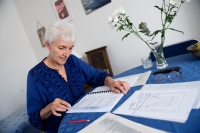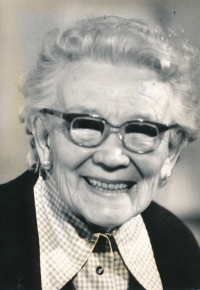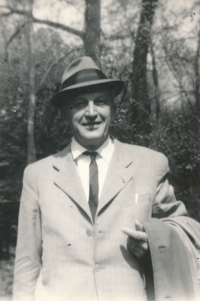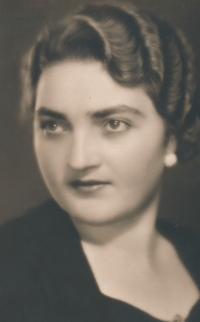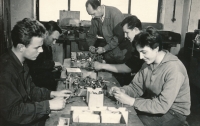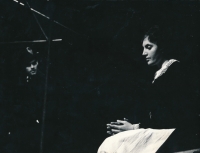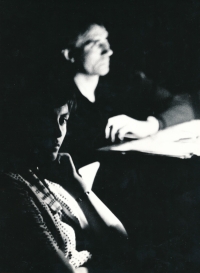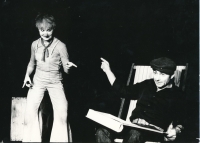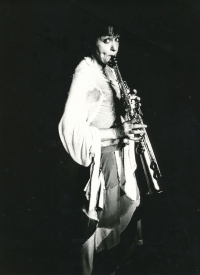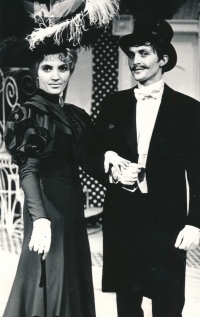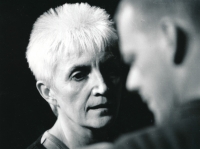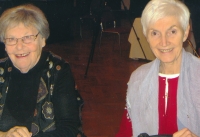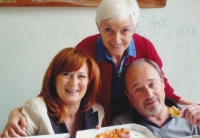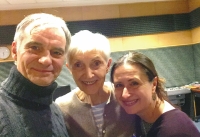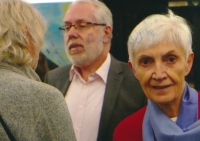Not to be bound by anyone or anything but your own decision

Stáhnout obrázek
Lída Engelová was born on 14 May 1944 in Prague. Her mother, Ludmila, worked in the Foreign Ministry before the Second World War, and her father, Ferdinand, was a customs officer. This was enough for Lída to be attributed bourgeois origins by the Communist Party street committee and be denied a recommendation to study at university. After graduating from high school, she first completed a two-year apprenticeship as an electrical fitter for high school graduates at the ČKD in Vysočany to improve her origins. This was successful, and in 1967, she graduated in acting from the Theatre Faculty of the Academy of Performing Arts (DAMU). However, already during her studies, she also began to incline towards directing. She became friends with Václav Havel and Jan Grossman at Divadlo Na zábradlí, starred in some plays and worked as an assistant director. After graduation, she stayed with directing. Right at the beginning of her career, she joined the National Theatre as an assistant director. In order to pursue independent work, she moved on to the J. K. Tyl Theatre in Pilsen and later to the State Theatre in Ostrava. She was forbidden to work on Prague stages because she refused to join the Communist Party. In 1973, together with the dancer and mime Zdenka Kratochvílová, she founded the pantomime Pocket Theatre, thanks to which they were able to perform in many places around the world. However, all of this took place under the supervision of the State Security Service and due to this pressure, the theatre closed down in 1987. She experienced the Velvet Revolution in the theatre in Ostrava and was the chairwoman of the Civic Forum during the Revolution. She refused the offer of the director‘s post and returned to Prague. Until 1993, she worked in the Prague City Theatres and eventually went freelance. During her lifetime, she participated in performances on many stages. She has practically never interrupted her collaboration with the Viola Theatre, where she directs at least one play a year. Throughout her life, she has prided herself on ensuring that her work not only conveys a message but also provides plays of a high linguistic standard. She has received many awards for her work, and in 2003, DILIA awarded her an Honorable Mention for a lifetime of outstanding artistic work. At the time of the filming (2023), she was living in Prague and still working as a director.
